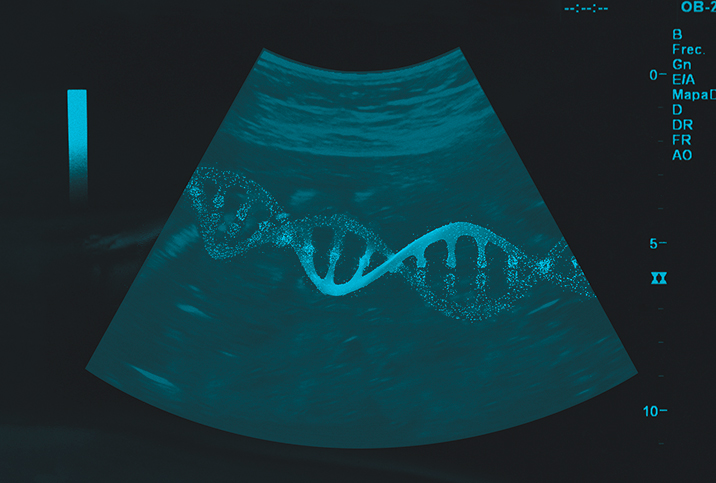Doctor's Note: Rh Incompatibility…What It Is and Why It Matters

Congratulations! You're pregnant, and one of the first things your healthcare provider does is order a slew of lab tests. One of those tests is to determine your blood type.
If you get a notification that says your blood type is Rh negative, this means you need additional shots during and possibly after the pregnancy to prevent complications. This is one of the more common but not well-explained treatments that occur in pregnancy, so let's break it down.
Blood types 101
There are four major blood groups, depending on the presence or absence of the A or B molecule on the surface of the red blood cell. These groups are A, B, AB (both molecules present) and O (neither molecule present).
In addition, there is a protein called the Rh factor that can be present (positive) or absent (negative). The combination of these molecules and proteins make the eight blood types: A+, A-, B+, B-, O+, O-, AB+ and AB-. The American Red Cross has a great article that breaks this down with illustrations (a picture is worth a thousand words, right?).
My blood type is Rh negative. Now what?
Pregnant women who are Rh negative need to have an injection at 28 weeks to help prevent complications later in pregnancy or in future pregnancies. The injection is Rh immune globulin, more commonly known as RhoGAM or Rhophylac, which helps prevent Rh alloimmunization.
Any Rh-negative woman who carries an Rh positive baby is eventually exposed to that baby's blood cells, usually during the delivery process, but sometimes due to trauma during pregnancy. Any bleeding in pregnancy can possibly be an exposure and, therefore, needs to be treated.
When this occurs, the woman's immune system develops antibodies against Rh-positive cells. Any future exposure to Rh-positive cells can result in those antibodies "fighting off" any Rh-positive red blood cells, which are perceived as a foreign threat by the mother's immune system. This is known as alloimmunization and can result in severe illness and even death for the developing baby. The disease that alloimmunization causes is called hemolytic disease of the fetus and newborn.
Rh immune globulin, aka RhoGAM or Rhophylac
In order to prevent a woman's immune system from creating these antibodies in the first place, the RhoGAM or Rhophylac injection is given at certain points in the pregnancy. The injection is made from collected donor blood with high levels of anti-Rh D antibodies.
Current recommendations are to give Rh immune globulin at around 28 weeks, within 72 hours of delivery of an Rh-positive baby, and after a potentially sensitizing event, including miscarriage, ectopic pregnancy or procedures during the pregnancy, such as an external cephalic version or an amniocentesis.
Tests can be done after a sensitizing event to determine how much Rh immune globulin is needed, as excessive fetal-maternal hemorrhage requires more than the standard dose to prevent complications. These tests can measure how much fetal blood is in the maternal circulation and determine how much RhoGAM is needed to prevent future alloimmunization.
The routine use of postpartum Rh immune globulin has reduced the rate of alloimmunization in at-risk pregnancies from approximately 15 percent to around 1 percent. Adding the routine prenatal injection at 28 weeks further reduced that risk to about 0.2 percent. Prior to the introduction of this treatment in the 1970s, alloimmunization was much more common, and hemolytic disease of the fetus and newborn was, unfortunately, a more common finding, resulting in more premature deliveries as well as stillbirths.
Alloimmunization
Unfortunately, even with the use of Rh immune globulin, alloimmunization still occurs on occasion. Typically, failure to adhere to protocol is when this occurs.
If a woman is found to already be sensitized, then giving Rh immune globulin won't prevent problems. Instead, her pregnancy will need to be monitored very closely with bloodwork to monitor levels of antibodies in her blood and ultrasounds to monitor the baby for any signs of developing anemia. She may be referred to a high-risk specialist, alongside her obstetrician, to help manage her pregnancy.
Rh incompatibility is one of many reasons good prenatal care is so important. It seems routine, but little things make a big difference for the health of you and your little one.


















